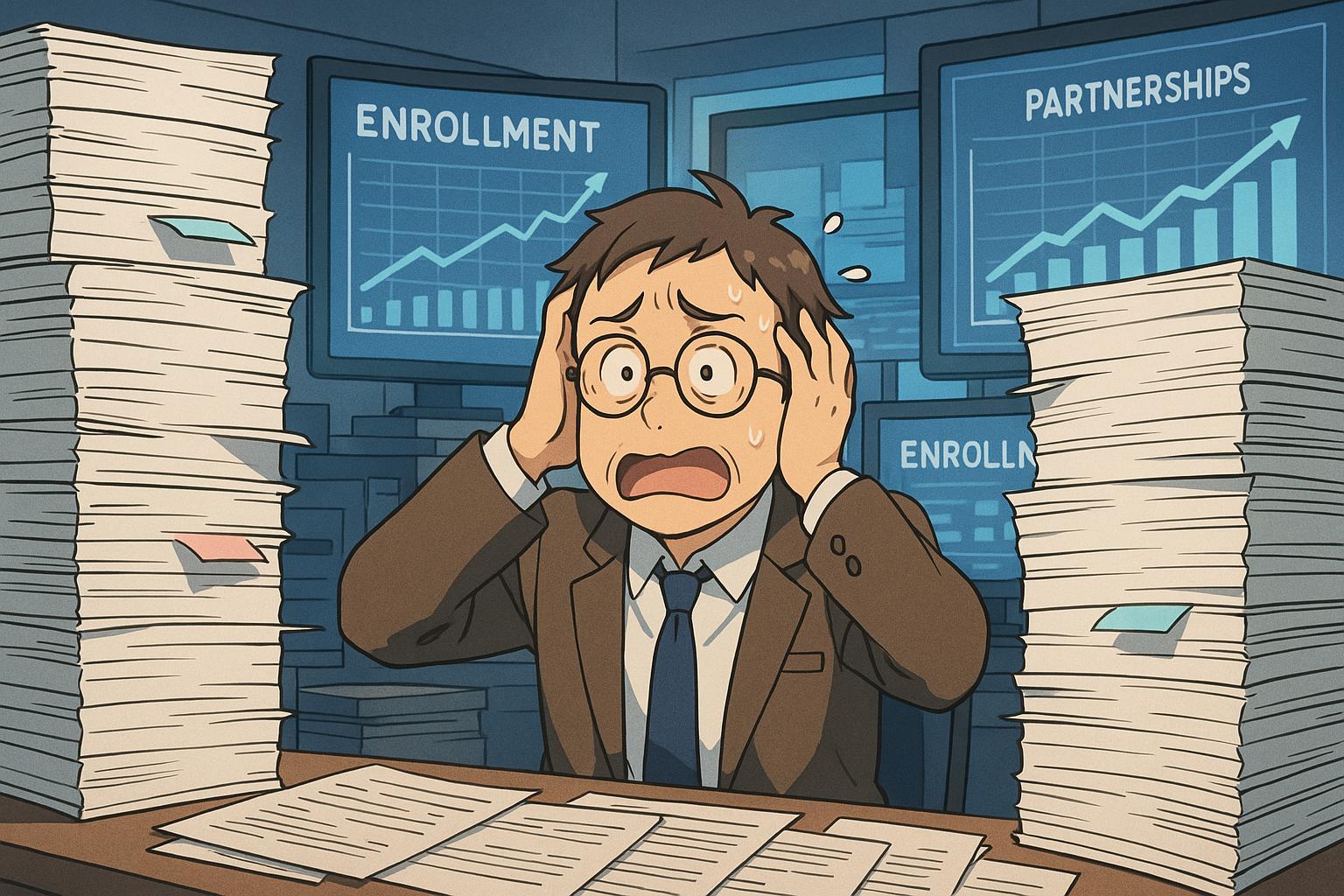An investigation launched by the Office for Students (OfS) into Leeds Trinity University has revealed significant shortcomings in the university's management of its subcontractual partnerships. This inquiry, which focused on the period between October 2022 and February 2024, concluded that the rapidly expanding nature of these partnerships had outstripped the university's capacity for effective oversight and response. The number of students enrolled in courses delivered through such arrangements surged from 3,600 in 2020/21 to 9,400 in the following academic year, illustrating a trend that has raised alarms across the higher education sector.
The OfS's findings highlight a troubling disconnect between the growth of enrolments via subcontractors and the university's ability to ensure quality education. The university reportedly lacked adequate resources to monitor academic standards effectively and neglected to escalate concerns regarding potential academic misconduct. The investigation revealed that Leeds Trinity did not appropriately consider the implications of lowering English language competency requirements for these students, raising further questions about its commitment to educational quality.
Philippa Pickford, the OfS’s Director of Regulation, emphasised the necessity of careful management in subcontractual arrangements to safeguard student learning experiences and ensure the integrity of qualifications conferred. She pointed out that universities retain ultimate responsibility for the quality of education provided under these partnerships. As such, other institutions employing similar arrangements are urged to critically evaluate their own practices, reinforcing the OfS’s stance that robust governance is essential.
In line with the findings, Leeds Trinity has accepted the conclusions of the inquiry and agreed to pay a financial penalty. While the university asserts that it is making strides to enhance its oversight processes, the OfS warned of a heightened risk of future breaches of regulatory requirements. The swift acceptance of the OfS’s findings, which included a commitment to remedial action, has mitigated the financial and administrative burdens that might have escalated through prolonged disputes.
This scrutiny comes against a backdrop of broader concerns regarding subcontractual partnerships in higher education, where potential risks have been flagged not just in terms of educational quality but also regarding financial misconduct and reputational damage. A recent report by the OfS underscored the dangers of prioritising financial benefits over educational integrity, cautioning that such practices could undermine the credibility of degrees and drain public funds. Universities have been warned of the consequences of insufficient governance, which could lead to intervention by regulators if the interests of students and taxpayers are jeopardised.
Leeds Trinity's vice-chancellor, Charles Egbu, reiterated the institution's ongoing commitment to widening access to higher education, acknowledging the challenges posed by rapid expansion in its partnerships. The investigation coincides with growing concerns that some franchised arrangements may facilitate fraudulent behaviour, including cases of students obtaining loans with no intent to repay.
As the landscape of higher education continues to evolve, this case serves as a stark reminder of the responsibilities universities bear in maintaining oversight and accountability in subcontracted educational provisions. The commitments made by Leeds Trinity University, framed as part of a broader movement towards compliance and transparency, must be viewed as a critical step in addressing the inherent risks linked to rapid growth in subcontracting.
The OfS's investigation and its findings resonate with a growing urgency for universities across the UK to take heed and reflect on their governance frameworks, ensuring that the expansion of educational opportunities does not come at the cost of the quality and integrity for which higher education is renowned.
Reference Map:
- Paragraph 1 – [1], [3]
- Paragraph 2 – [1], [2], [6]
- Paragraph 3 – [4], [5]
- Paragraph 4 – [1], [2], [7]
- Paragraph 5 – [6], [4]
- Paragraph 6 – [1], [3], [5]
Source: Noah Wire Services
